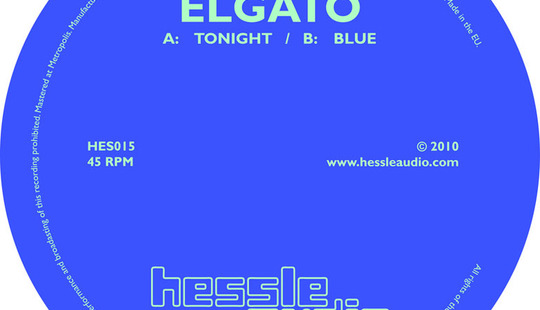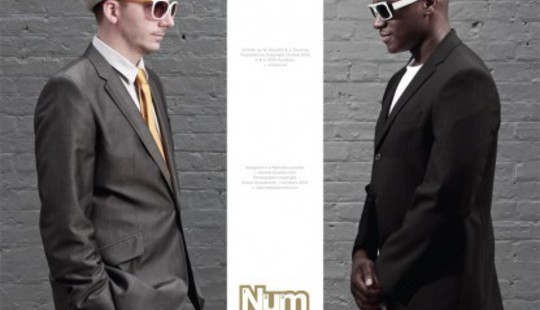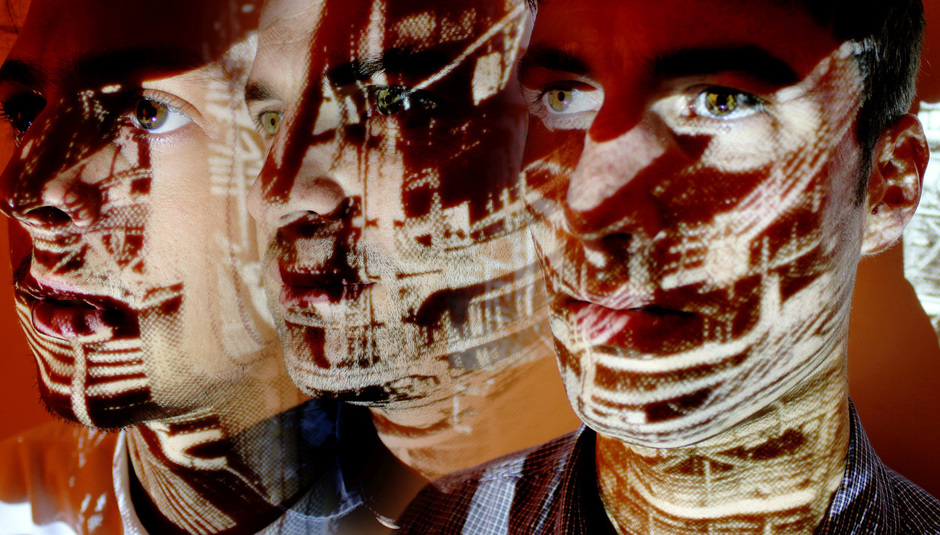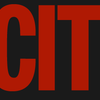In this edition we trace the twilight paths explored by Hyperdub's Darkstar. Their debut album North is released later this month, and has proved to be one of those deceptive records that quietly embeds itself in your consciousness and quickly becomes impossible to stop playing.
It comes in the wake of a period of transition, the shift from production duo to live trio, and fittingly explores territory that’s at once brand new and intrinsically tied to their older material. It’s a transformative listen, the sort of album that suggests one thing initially only to reveal its true self far later. It's also a bold step both for the band themselves and their label, striking out in new directions and cementing Hyperdub's status as a true shapeshifter.
Alongside North and Terror Danjah’s upcoming Hyperdub album Undeniable, the seasonal shift into autumn has been accompanied by a particularly interesting crop of new releases from across the board. Jack Sparrow’s Circadian album for Tectonic expands on the rolling techno feel of his earlier singles; Commix pull together a veritable who’s who to remix their Call To Mind album; and new 12”s from Hessle, Numbers and Ramp push outward in bright and bizarre new directions.
Were you to burrow a path through copper wire, routers and circuit boards to locate the very heart of the machine, at the place where its equivalent of a soul rests you’d likely come across Darkstar. Their music has always spanned the interface between humanity and technology, though the crossover was far more obvious on their earlier releases. With last year’s sleeper hit ‘Aidy’s Girl Is A Computer’ that exchange reached its logical pinnacle; in its achingly sad two-step pulse they hit terminal velocity, and began a steady spiral leading downwards to their debut album North, one of the year's finest records. It’s an exquisite, tantalisingly brief creation, one which sends an electromagnetic pulse through the system to knock out all but a few blinking LEDs, left to remind the listener that, yes, behind its organic exterior mechanical components still quietly tick over.
North brims with feeling, the sound of three people hijacking the mainframe and spinning tales in a language both humans and machines can understand: stories told in a binary hybrid. In that sense it isn’t as radical a departure from their older sound as some might lead you to believe - the clues were always there, in the wracked slo-mo soul music of ‘Squeeze My Lime’ and ‘Out Of Touch’. Their shift in line-up and conscious change in method – vocalist James Buttery joining original duo James Young and Aiden Whalley; an increased focus on live performance – have simply intensified traits that were already there, distilling them into ten elegant, slow-burning pop songs. Opener 'In The Wings' shimmers in shades of delicate grey and green, and the Scorsese-influenced 'Two Chords' is devastating, hopelessly watching two strands of a relationship unravel. Throughout, Buttery’s vocals sound as though they’re in the process of decay, shredded through a matrix of microprocessors and set to the slow swell of the original duo’s backing - all synth, piano and glitchy drums.
North’s grainy, unfocused quality was at least in part due to the way it was created. Despite the shift away from a dance sound towards a more band-oriented way of doing things, the creative processes behind the album remained very much rooted in a ‘bedroom producer’ mentality, with Young and Whalley writing the entire record before drafting in Buttery to record vocals. “Everything was done in a flat in Clapton, a split-level lounge & kitchen type thing, and we literally made the album in one corner of the upstairs room,” explains Young, when we meet in a pub on a grey, drizzle-obscured London afternoon. “Kind of weird - really unprofessional I suppose! But then I guess we wouldn’t have gotten the results we did otherwise.” And although it’s hard to pick out individual elements in their music’s murky backdrop, the mind almost fills the gaps with sounds from the surrounding world outside the flat – the rush of passing traffic, wordless chatter from people on the street, warm spring rain drumming on the roof.
When I ask about the shift away from dancefloor tracks to the downbeat elegance of North, Young explains that the duo felt limited by the functionality of dance music production. “It’s all about phrasing, and [writing] became a very linear process for us. We just got into messing around with piano and guitars. At that point we were looking for vocals to fit into this, so we started writing top lines and moved on from there.” Later, he explains a little more about the album’s lengthy gestation. “It was difficult - it was really difficult actually - because we didn’t know where it was actually going," he insists. "We were just feeling our way round a new way of writing, and just trying to hope that it went well. There was a lot of frustration; there were a lot of fruitless days. It was a difficult process.”
By this point they had already scrapped the album’s worth of material they originally sent to Hyperdub label head Steve Goodman. “We were riding off the back of ‘Aidy’s Girl’, which did really well last year. We had all these tracks that leant towards that, and I think we probably could have done quite well off it. But personally, I’m not sure how I could have moved on from it, or how I would have felt backing it if my heart wasn’t in it.” He pauses for a few moments, and, appropriately, Fleetwood Mac’s ‘Go Your Own Way’ begins playing in the background. “When we sent it to him there was no kind of celebration or relief, Aiden and myself were thinking ‘I don’t know about this, I don’t think it’s the way we should go’.” Young is quick to maintain, though, that the change wasn’t simply a result of not enjoying the older material. “We liked those tunes, and loved making them, but at the same time, as I said before, it’s difficult to... I watch so many films, listened to a lot of film scores and albums, I kind of want to push for other things.”
Those other things have fully separated Darkstar from a dubstep bracket that never seemed to fit them comfortably anyway, although Young remains enthusiastic about the influence of the early FWD>> sound on their own development. The truth of the matter is that ‘dubstep’ as a label became inadequate almost as soon as it solidified, requiring constant qualification with other vague tags: 'wonky', 'future garage', 'post-'. The best music that’s emerged from the scene since is like quicksilver, impossible to pin down without it slipping just out of reach. North is one such beast, in as much as it exists in the spaces between lines. When Young talks at length about being influenced by film scores – particularly by Jacques Audiard's The Beat That My Heart Skipped – it’s immediately possible to detect their influence in North’s self-contained, intensely visual nature. It appears to stretch out an all directions, a flat, almost featureless expanse that’s immediately reminiscent of rolling hills and moorland. “It’s weird you say that,” ponders Young. “I know what you mean – I think Aiden said that actually. We’re thinking of DIY video concepts to do ourselves, and the moors have come up quite a few times.”
Even beyond its title, the spectre of the north of England, where the trio grew up, haunts the album. “There are a lot of lyrical references back to the north,” agrees Young. “Anything from ex-girlfriends to people I’m fond of, friends... Really mundane things from the outside, but I like interesting things about everyday normality. That’s what’s around me, so it’s what I write about. You get a melody and write about how you’re feeling that day, or something in the past, or someone in particular.” Even to an outside listener it provokes a slow-burning nostalgia, casting my own mind back to childhood holidays with friends and family in Yorkshire. But just like Burial and Kode9’s deeply evocative past and future landscapes, it’s hard not to wonder whether mine may be imagined memories, conjured up through sheer force of projection.
“I think it’s got that Hyperdub thing over it,” he agrees. “I’m not sure if it relates to a lot of the newer bits they’ve put out, but definitely stuff like Burial, Zomby, King Midas Sound. I think the North album’s still got that energy. It’s very much in that kind of area, though dramatically changed in vocals and sonics.” Being involved with Hyperdub has been, he says, thrilling – “Burial’s first album [and Hyperdub's early releases] pretty much kickstarted the Darkstar thing really” – and they’ve shown nothing but support for an album that, for many, will be seen as a real departure for the label itself. “When I sent them the first draft of North, in the email I said ‘I’m not sure if it’s a Hyperdub record',” Young tells me. “Immediately I got a phonecall saying ‘This is it!’”
The previous evening, on a chilly and clear early autumn night, Darkstar play their debut London live show to a comfortably full room. Casting hazy silhouettes amongst a soft backlit glow of dry ice, they present an intriguing visual dynamic. Buttery – looking thin in a heavy hooded coat, long hair dropping in front of his eyes – grasps the mic stand, flanked by the still figures of Whalley and Young. Both are intensely locked in concentration, teasing out the slow grooves of ‘Deadness’ and their lushly orchestrated cover of The Human League’s ‘Gold’. The crowd, meanwhile, seems divided, unsure as to what they’re hearing but equally curious. It’s an entirely different dynamic to the DJ/crowd interaction, and one that fits the more considered music that drifts from the stage.
In the wake of beginning to perform live, Darkstar are beginning to write as a trio. “James is a good musician, he’s got some great ideas. We’ve just taken our first steps into that process, it’s interesting – it’s intense!,” laughs Young. Working with real instruments must add a real level of spontaneity, I ask, compared to the rigidity of computer production. “Totally,” he nods, “especially with James and Aiden, they’re more musically inclined.” He considers how to explain that change. “My favourite track on the album is ‘Deadness’, and we wrote that from start to finish in twenty, twenty five minutes. I just feel it’s the strongest because it’s flowing, it seems right, everything has interlinked and combined well. The recording obviously took ages, but the writing was done really quickly. If [the three of us] can get into that kind of rhythm, I’m really looking forward to it. We’re trying to do it in a prolific way, get in there and get it done. Get into a rhythm and keep knocking them out!”
In the meantime, North's wonderful, rain-drenched melancholy should only intensify through the coming autumn and winter months.
North is released on 18th October through Hyperdub.
And the pick of the latest releases…
Jamie Woon – Night Air [Candent]
I suspect that the vinyl edition of Jamie Woon’s superb ‘Night Air’ will prove a real blink-and-you’ll-miss-it artefact. Woon’s voice is a soft, supple thing, and there’s a breathy clarity to his delivery that even seems to make the music surrounding it ripple slightly. Ramadanman’s rearrangement sends fractals of synth lancing right through the song’s core, and the original – produced with assistance from Burial - shows almost torturous restraint by doling out only the tiniest drops of melody at a time.
Elgato – Tonight/Blue [Hessle Audio]
 After several intensely percussive releases this year (Ramadanman’s jungle-infused EP, shocking precision from Blawan and Joe’s I’ve-heard-this-so-many-times-already-I’m-not-sure-I-can-deal-with-any-more ‘Claptrap’), Hessle Audio have taken their foot off the gas slightly for Elgato’s debut. It’s an exciting new direction for a label that still has yet to take a wrong step. Billed as ‘a 12” of dance tracks and love songs’, the emphasis probably ought be on the latter – albeit prefixed with ‘unrequited’ – working a lush, minimalist form of funky that’s totally absorbing through headphones. ‘Tonight’ inverts early Hessle into a sad, dampened groove; it’s a track you might find hammering on your door in the early hours in a sorry, drunken state, desperate for a place to crash.
After several intensely percussive releases this year (Ramadanman’s jungle-infused EP, shocking precision from Blawan and Joe’s I’ve-heard-this-so-many-times-already-I’m-not-sure-I-can-deal-with-any-more ‘Claptrap’), Hessle Audio have taken their foot off the gas slightly for Elgato’s debut. It’s an exciting new direction for a label that still has yet to take a wrong step. Billed as ‘a 12” of dance tracks and love songs’, the emphasis probably ought be on the latter – albeit prefixed with ‘unrequited’ – working a lush, minimalist form of funky that’s totally absorbing through headphones. ‘Tonight’ inverts early Hessle into a sad, dampened groove; it’s a track you might find hammering on your door in the early hours in a sorry, drunken state, desperate for a place to crash.
Jack Sparrow – Circadian [Tectonic]
 Dubstep has proved remarkably adept at rewiring itself for album format, largely because its loose house rules are flexible enough to allow individual producers to stamp their own unique mark upon them. A quick scroll back through its most memorable long-players (Burial’s two albums, Kode9 & the Spaceape, Ikonika, Pinch, Peverelist, Shackleton) offers a glimpse of a music constantly struggling against its own boundaries, pushing relentlessly outward in search of new modes of expression. Jack Sparrow’s Circadian is another to add to that list. All the extraneous layers are peeled away from his music to leave little more than oceanic sub-bass depth and sultry beats that tessellate across the surface.
Dubstep has proved remarkably adept at rewiring itself for album format, largely because its loose house rules are flexible enough to allow individual producers to stamp their own unique mark upon them. A quick scroll back through its most memorable long-players (Burial’s two albums, Kode9 & the Spaceape, Ikonika, Pinch, Peverelist, Shackleton) offers a glimpse of a music constantly struggling against its own boundaries, pushing relentlessly outward in search of new modes of expression. Jack Sparrow’s Circadian is another to add to that list. All the extraneous layers are peeled away from his music to leave little more than oceanic sub-bass depth and sultry beats that tessellate across the surface.
The effect isn’t a million miles from Shackleton’s more propulsive moments. Sparrow’s is a different type of darkness though, lonely and resigned rather than angry, and prone to sudden bursts of beauty – witness the warmth that rises through opener ‘Loveless’, or the fragile chimes of Indi Kaur collaboration ‘Subterranean’. The track titles reveal a little something of the headspace that gave rise to them – ‘The Chase’; ‘Terminal’; ‘Relapse’ – and there’s a trapped, claustrophobic edge to his beats that, while often unsettling, lends them a wonderful nervy energy. By the end you’re spat out in a heap, unable to sit still, with a slightly masochistic desire to go through the whole experience again.
Commix – Re:Call To Mind [Metalheadz]
Given the current accelerated rate of mutation within underground dance music circles (thanks, largely, to dubstep blasting everything in earshot with body-warping radiation; a sub-bass Chernobyl), it feels necessary to sit back and take stock every once in a while. Since the start of this year things have continued to move in unprecedented directions: dividing lines dissolved as the cell walls hemming in genres collapsed, spilling their guts into a swampy shared middle ground. In particular, the UK bass community and Berlin have locked into an ever-tighter dialogue, with analogue anarchist Kassem Mosse releasing on Nonplus+, Autonomic drum'n'bass drawing from techno, and Shed's excellent The Traveller album somewhere between the two poles.
Re:Call To Mind, a remixed companion piece to Commix's Call To Mind album, is beguiling evidence of just how permeable the barriers have become. Its tracks are reimagined as techno, house, dubstep and drum 'n' bass - with quite extraordinary cohesiveness - by a roster that reads like a who’s who of the dance music underground. Best of the lot is Mosse's characteristically antique-sounding 'Strictly (Needs To Feel Edit)', its creaking superstructure constantly on the verge of total collapse. Remix albums can be notoriously patchy; what's most arresting about Re:Call To Mind is that it functions not only as an adept summary of dance music's current cross-contamination, but also as an impressively complete listen in its own right. And finishing with Underground Resistance's acid-tinged 'Satellite Song' remix is a connective stroke of minor genius, drawing attention to just how influential the Detroit collective have been on the strung-out musical landscape of now.
Untold & Roska – Myth/Long Range [Numbers]
 Dubplate culture can be a bitch. Roska and Untold’s funky anthem ‘Myth’ has been floating around for what feels like an eternity in DJ sets and mixes, and landing finally at the end of 2010 it’s all a bit, well, 2009. Luckily that doesn’t diminish its addictive nature, and while it smoothes the feat of sounding exactly like Producer X + Producer Y (Roska’s kicks and snares; Untold’s warped eski bass) it’s still the dancefloor equivalent of a cluster bomb: maximum damage for minimal expenditure. The looped groove of ‘Long Range’ is fresher for seeing less play, and so much fun it should probably be illegal.
Dubplate culture can be a bitch. Roska and Untold’s funky anthem ‘Myth’ has been floating around for what feels like an eternity in DJ sets and mixes, and landing finally at the end of 2010 it’s all a bit, well, 2009. Luckily that doesn’t diminish its addictive nature, and while it smoothes the feat of sounding exactly like Producer X + Producer Y (Roska’s kicks and snares; Untold’s warped eski bass) it’s still the dancefloor equivalent of a cluster bomb: maximum damage for minimal expenditure. The looped groove of ‘Long Range’ is fresher for seeing less play, and so much fun it should probably be illegal.
More next month. In the meantime, a running commentary on similar music and more can be found at Always Everything, co-edited by Rory Gibb.






















